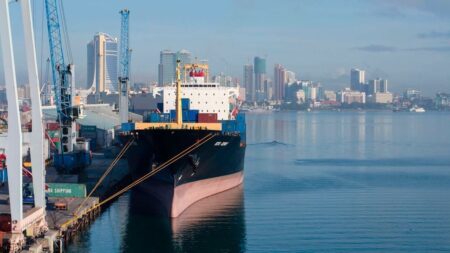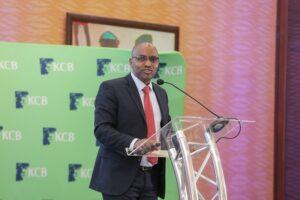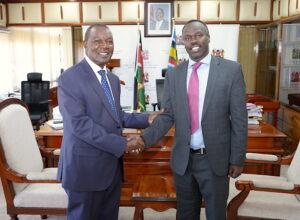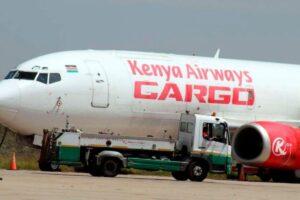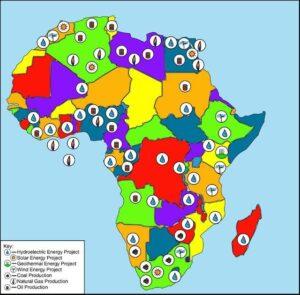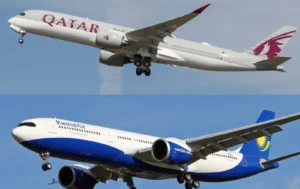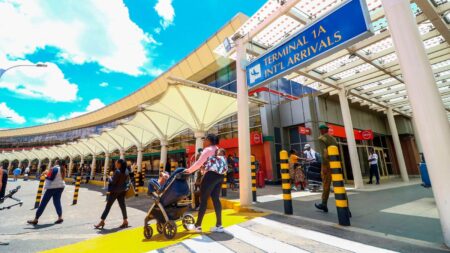- South Africa Inflation falls to a Four-Year Low Before Rate Decision
- A deep dive into how Africa’s hospitality industry is evolving to meet 2025 travel trends
- Green energy revolution in Kenya: How solar power is transforming rural communities
- Trump’s Presidential Win Influences Currency and Financial Decisions in Africa
- Gabon’s Referendum: the First Step Toward a Return to Civilian Rule
- COP29: Africa calls for fair GDP valuation of its $6 trillion natural wealth
- Africa’s rising global role as BRICS onboards Egypt and Ethiopia
- Environmental pollution: A swelling pain point among communities in Africa
East Africa
- Tanzania has offered the Uganda National Oil Company (Unoc) to use the Dar es Salaam port for oil importation.
- This presents a strategic alternative amid the ongoing importation stalemate between Uganda and Kenya.
- The legal dispute between Uganda and Kenya over oil importation policies is pending before the East African Court of Justice (EACJ), with indications that Uganda may withdraw the case.
Tanzania has stepped forward with an enticing proposition that Kampala finds hard to ignore, especially regarding the ongoing deadlock in Nairobi-Kampala oil imports.
Tanzania has extended an offer to the Uganda National Oil Company (Unoc) to utilise the Dar es Salaam port for its fuel importation needs. This development comes as Uganda explores alternatives in response to Kenya’s steadfast position on Kampala’s oil importation demands.
Uganda’s grievance at the East African Court of Justice (EACJ) remains pending amid these unfolding events, casting a shadow of uncertainty over …
- In the three months to March 2023, Group’s total assets rose by 39.8 percent to close at $11.8 billion buoyed by DRC subsidiary TMB.
- Revenue increased by 26.9 percent to $267.4 million mainly driven by the non-funded income from customer transactions across the Group.
- This is the Group’s newest subsidiary in the Democratic Republic of Congo.
- It demonstrated the range and diversified income streams across the group’s businesses, adequate to cover the elevated operating and funding costs.
Regional lender KCB Group Plc posted $68.8 million in profit after tax for the first quarter 2023, a marginal drop attributable to acquisition and consolidation costs of its newest subsidiary, Trust Merchant Bank (TMB), in the Democratic Republic of Congo.
In the quarter, however, the Group recorded a strong balance sheet growth with total assets hitting $11.8 billion, with TMB contributing 14 percent to the Group’s total assets. The bank said this was …
- Insurance industry paid claims worth $400Mn in three months from October 2022 to December 2022 representing a 3percent increase compared to the third Quarter of 2022 that paid claims worth $391Mn.
- Latest statistics from the Insurance Regulatory Authority (IRA) indicate that the number of claims reported to the insurers were 2,040,600, a 12.6 percent increase compared to 1,811,141 claims reported in Q3,2022.
- General liability claims paid went up by 16.8 percent to 14,085 claims worth $42Mn from 12,055 claims paid worth $40Mn billion in the previous quarter. Non – Liability claims paid hit 1,714,723 claims worth $170Mn representing a 1.8 percent from 1,684,698 claims worth $160.31Mn reported in Q3 2022.
Insurance industry paid claims worth $400Mn in three months from October 2022 to December 2022 representing a 3 percent increase compared to the third Quarter of 2022 that paid claims worth $391Mn.
According to the Quarter 4 of 2022 claims …
- LG Electronics has appointed Dong Won Lee as its new Regional Managing Director for East Africa (EA) as the company seeks larger market share in the region.
- Lee replaces Sa Nyoung Kim who served as LG EA Managing Director for three years since January 2020.
- Lee brings over 20 years of hands-on experience and knowledge in leadership, performance improvement, sales, and marketing in the consumer electronics industry.
LG Electronics has appointed Dong Won Lee as its new Regional Managing Director for East Africa (EA) as the company seeks larger market share in the region.
Lee replaces Sa Nyoung Kim who served as LG EA Managing Director for three years since January 2020.
Before his appointment, Dong Won Lee was the Managing Director of LG Iraq, a position he has held since 2019. He is celebrated for turning around the business in Iraq by increasing sales growth by 50 percent hence …
As Africa’s role in the global economy continues to garner prominence, it’s imperative for the continent to seal the gaping hole in its power supply.
Lack of universal power access remains a major roadblock that has retrogressed industrialization and socio-economic development. Statistics from the World Bank indicate that Africa remains the least electrified region in the world, with 568 million people lacking access to electricity.
The Bretton Woods institution, further notes that the Sub-Saharan Africa’s share of the global population without electricity, jumped to 77 per cent in 2020 from 71 per cent in 2018, whilst most regions saw declines in their share of access deficits. It has become a Hobson’s choice for African governments to prioritize the power sector, which is the epicenter of industrialization, working towards Goal 7 of the UN SDGs; which advocates for universal access to affordable, reliable and modern electricity services.
Currently, Africa’s power is …
World Bank further notes that the unified digitisation of the East African economy is estimated to generate up to a US$2.6 billion boost in GDP and 4.5 million new jobs that will largely benefit those at the bottom of the pyramid.
Data by GSMA reveals that by the end of 2020, 495 million people subscribed to mobile services in Sub-Saharan Africa, representing 46 percent of the region’s population, an increase of almost 20 million on 2019.
GSMA revealed that smartphone connections will more than double by 2025 in Sub-Saharan Africa with the East African Community registering the largest incremental growth, led by Rwanda and Tanzania. …
Rwanda has gone a step further and promoted its tourism attractions on the world stage, through sports via its ‘Visit Rwanda’ tagline on England’s Premium League football clubs.
The EAC core objectives compel the countries to bring collective efforts to promote their industry and share benefits as they come. So far, the EAC treaty (under Article 115) has shown partner states can undertake and develop collective and coordinated approach to the promotion and marketing of quality tourism into and within the community (EAC).
Hence, the entire concept of coordinating policies in the tourism industry to establish a framework of cooperation is vital, as it will promote the equitable manner of benefit-sharing. …
[elementor-template id="94265"]
- The region had drawn a number of important lessons from the pandemic especially in relation to the economic sectors that were hard hit such as tourism
- EAC citizens should be charged local rates while entering public tourist sites such as national parks and reserves that are distributed across the region
- EAC Partner States should also diversify their tourism products by developing other products
East African Community Partner States lost 92% of revenues in the tourism sector due to the COVID-19 pandemic, with arrivals to the region falling from 6.98 million arrivals before the pandemic to 2.25 million arrivals occasioning the losses.
EAC Secretary General Hon. (Dr.) Peter Mathuki however noted that the region was now open again for business, and urged EAC Partner States governments and other stakeholders to work together to market the region’s tourist attractions and products as part of efforts to ensure speedy recovery for the sector.…
- The private sector in the community has been urged to drive the buy and build East Africa initiative
- Foreign Direct Investments (FDI) in the EAC dropped by 43% to USD. 4.9 billion in 2020
- Jobs declined by 2%, wiping out the gains made in previous year
Trade between East Africa Community countries dropped by 5.5% to USD. 5.9 billion in 2020 due to COVID-19 while exports from the bloc to the world hit 16.2 billion in 2020 a 3% boost in comparison to 2019.
This is according to the East Africa Business Council CEO John Bosco Kalisa who urged the private sector in the community to drive the buy East African, build East Africa narrative.
He added that the campaign is central in driving the economic recovery agenda for the EAC bloc amid COVID-19 pandemic.
He spoke during a webinar on EAC Trade & Investment Recovery amidst COVID-19 organized by …





